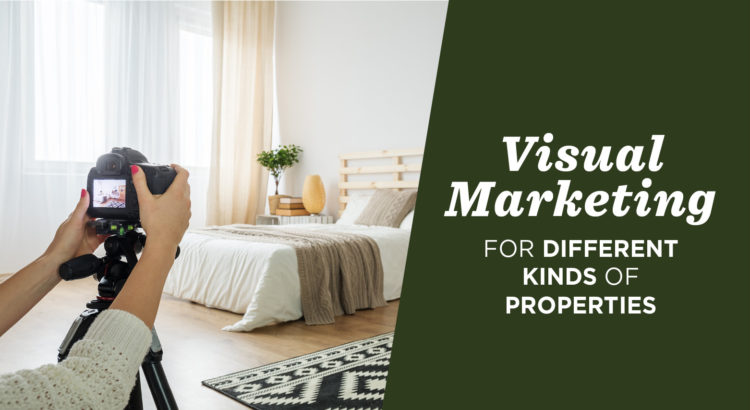Most real estate agents will tell you that quality photography is one of the most important tools for marketing their listings. In fact, great photography is at the very heart of marketing any property, allowing potential buyers to make an emotional connection to the home, even before seeing it in person. On the other hand, poor photography can also be an immediate turn off to potential buyers, causing them to bypass the listing entirely. Done poorly, it can even lower the perceived value of the property.
Photos Can Make or Break a Listing
These are more than just anecdotal opinions. NAR’s annual Profile of Home Buyers and Sellers is a long-standing resource from the association which evaluates consumer behavior and preferences. It has shown that listings with photography will hold a potential buyer’s attention for at least 20 seconds, compared to a mere 2 seconds for a listing without images. Most shockingly, 84 percent of home buyers said they wouldn’t even consider a listing if it didn’t include photos.
Use the Right Media for the Property
Different kinds of properties benefit from different kinds of visual marketing approaches. While you might want to set up an entire landing page with aerial video footage for a luxury property, the same approach would be overkill for a home that’s more closely aligned with the national median price point.
What’s more, visual marketing strategies and tactics are different for various types of homes (luxury condo, single-family home, vacation home, city vs. rural, etc), making it even more complicated. What works for your type of property in your particular market just depends.
You may wish to do a little competitive analysis and scope out how other colleagues are making their visual marketing stand out. If comfortable doing so, you can even go to them for tips and advice on how they got to where they are with their photography skills.
The Elements of Quality Real Estate Photography
So, given the importance of photography, how do you know the best way to visually market your listings? Whether you choose to work with a professional photographer or not, it’s important that you understand the basics of quality real estate photography.
#1. The Right Skills
Only after you determine the type of visual content that will work best for the property—photo, video, aerial—can you determine who will be best to do the work. There is no right or wrong answer here (unless you’re talking about who is legally authorized to operate a drone). Depending on your skill level, in some cases you will be able to do the photography yourself. In other instances, you will definitely need to hire a professional.
#2. The Right Equipment
If you’re doing to work yourself, you’ll have to rent or purchase the right equipment. To get the shots that will really help sell your property, it’s time to consider putting down your smartphone. You may need an ultra-wide-angle lens, an external flash, a tripod, and editing software. It might be a great idea to make friends at your local photography store so they can advise you, or find a good online resource or tips guide.
#3. The Right Styling
There are some simple tips for preparing the home for your photoshoot. Prepare the house much in the same way you would for an open house—turn on all available lights, declutter the space, remove all cars from the driveway to freely show the entire exterior of the home, and more. Learn from trial and error, as sometimes the only way to know what works is to play around with the variables of the shoot onsite and see what works best.
#4. The Right Composition
For real estate photos, there are some tips that you can use to help ensure that your shots of the home have the best composition. For instance, always show a third wall, show your rooms in thirds, use the lines of the room to draw the eyes through the space, utilize objects in the foreground, and more. It cannot be overstated how much of an impact lighting can have, so it will make sense for you to spend more time and resources on good lighting.
Taking It to the Next Level
While many real estate agents choose to work with a professional photographer, other agents choose to photograph their listings themselves. To learn more about the equipment you’ll need to shoot professional-looking shots, how to get the right exposure, tips for making your property photo shoot ready and more, sign up for our course How to Shoot Real Estate Photography Like a Pro today. This course was co-developed with VHT® Studios, a leading real estate consultant and service provider located in the Chicagoland area.
AgentEDU® is a platform where agents at every level can come to watch 10-minute video courses for the many situations that successful agents must master. From essential to advanced level and everything in between, AgentEDU® courses help agents become top producers with increased earnings and a plan for continued growth. For a 7-day free trial sign up here.
AgentEDU® is an Agent Publishing brand. For nearly two decades, Agent Publishing has been committed to providing residential real estate professionals with the information and training required to build successful and meaningful careers in their local markets. Agent Publishing’s influence extends to every career stage and reaches agents across print, digital, events and online learning.


